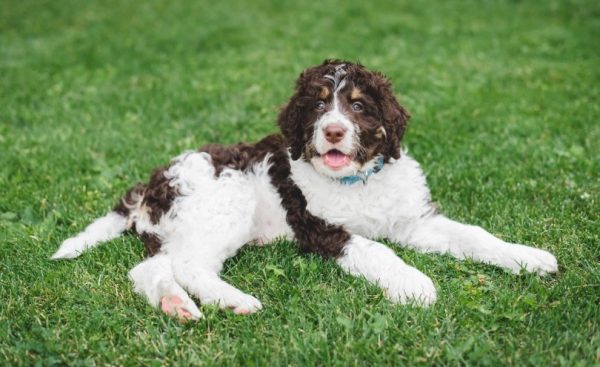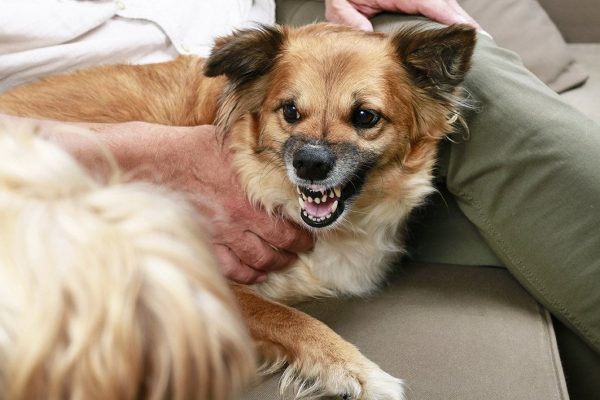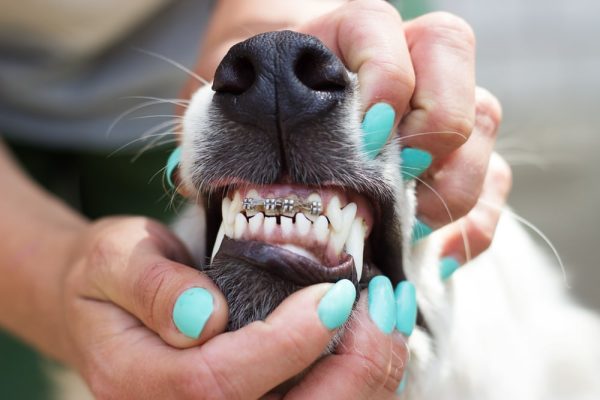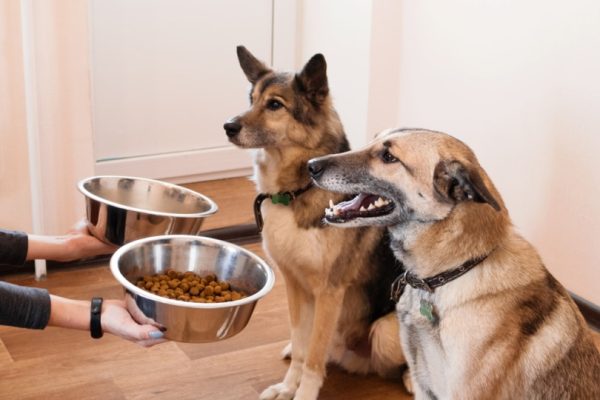Dogs have many interesting behaviors, but tilting their heads to the side is perhaps one of their most adorable ones. They tend to tilt their head when they hear specific sounds or their favorite words that they associate with something positive, like “treat” or “walk”. Their head tilt is usually accompanied by perked ears and alert eyes, and some dogs will even tilt their head back and forth.
Head tilting is a fairly normal behavior in dogs, but many dog parents are often left wondering why their dog does it. If that’s the case, then this article has the answers for you.

The 4 Reasons That Dogs Tilt Their Heads
The two likeliest reasons dogs tilt their heads are to hear and see better. This will be discussed more in-depth below.
1. To Hear Better
Despite having a keen sense of hearing, dogs may still need to tilt their heads sideways to hear better. Tilting their heads and ears to the direction of a sound helps them determine the sound’s distance and possible location.
It’s normal for dogs to tilt their heads when we are talking to them. Certain words might spark their interest and make them focus more intensely on what we are saying. Words with positive associations to your dog, such as “treat”, can make them tilt their head to hear and understand you better when you speak to them.
Furthermore, dogs may also tilt their heads to hear distant sounds or frequencies our ears might not pick up. That’s why some dogs randomly tilt their heads even when no one is speaking, or the house is silent.

2. They Have a Droopy Pinnae
The human hearing system is designed to detect sounds without us having to move our heads. However, this isn’t the case for canines, most of which have partially or completely covered ear canals. A dog’s ear flaps (pinnae) act as a funnel to help carry sound to their ear canals. Moving their pinnae to the direction of the sound and tilting their heads can allow for better sound optimization.
Droopy pinnae, as seen in breeds like Basset Hounds, can interfere with sound transmission and limit their sound-detecting abilities because they act as a barrier. That’s why droopy-eared breeds will lift their pinnae and tilt their heads sideways when trying to hear better.
Even breeds with erect ears have moveable pinnae to guide their ears toward specific sounds despite having uncovered ear canals. The sound is then funneled by the pinnae, through the ear canal to the middle and then the inner part of their ears.
3. To See Better
Another possible reason dogs tilt their heads is to see better. A dog’s facial shape and eye placement could interfere with their vision. For example, long-snouted breeds may have trouble seeing from certain angles when their snout interferes with their vision.
Tilting their heads sideways could help broaden their vision range, allowing them to see more clearly. It’s useful when dogs need to communicate with us since they can observe us better and notice changes in our facial expressions. Flat-snouted breeds with erect ears, such as Boston Terriers, might not need to tilt their head as much.
Most dogs tilt their heads to hear and see better at the same time. It has a significant role in how they understand their environment and other animals or people.

4. They Might Have a Vestibular Disease
Head tilting can be a cause for concern if it’s caused by medical issues. Head tilting can be a sign of an ear infection along with a neurological issue called vestibular disease.
Ear infections often make the ear itchy and painful. Your dog may tilt their head to the side as a way of relieving some of that pain. Infections in the middle ear may even disrupt a dog’s balance and cause a more persistent head tilt. Other signs of an ear infection include head shaking, scratching or rubbing the ears and a smelly discharge.
Vestibular disease is a more serious medical issue that can cause a persistent head tilt in dogs. It can be caused by trauma, middle and inner ear infections, or by an unknown cause. Dogs with vestibular disease usually experience problems with their balance and coordination. Most dogs will fall in the direction of their head tilt and seem disorientated or reluctant to move.
If your dog is showing concerning behavior alongside a head tilt, they should be evaluated by a veterinarian.
If you need to speak with a vet but can't get to one, head over to PangoVet. It's our online service where you can talk to a vet online and get the advice you need for your pet — all at an affordable price!


Conclusion
Dogs usually tilt their heads so that they can hear or see better. This allows them to understand their environment and helps with communication. Tilting their heads in the direction of certain sounds helps with better sound transmission, especially in breeds with droopy ear flaps. It’s also common for long-snouted breeds to tilt their heads to observe their surroundings and us better.
Despite being a relatively normal behavior, head tilting could be a sign of several health problems, like ear infections. So any sudden or persistent head tilting, especially if accompanied by other signs, should be checked out by a vet.
Featured Image Credit: chrisukphoto, Shutterstock


















